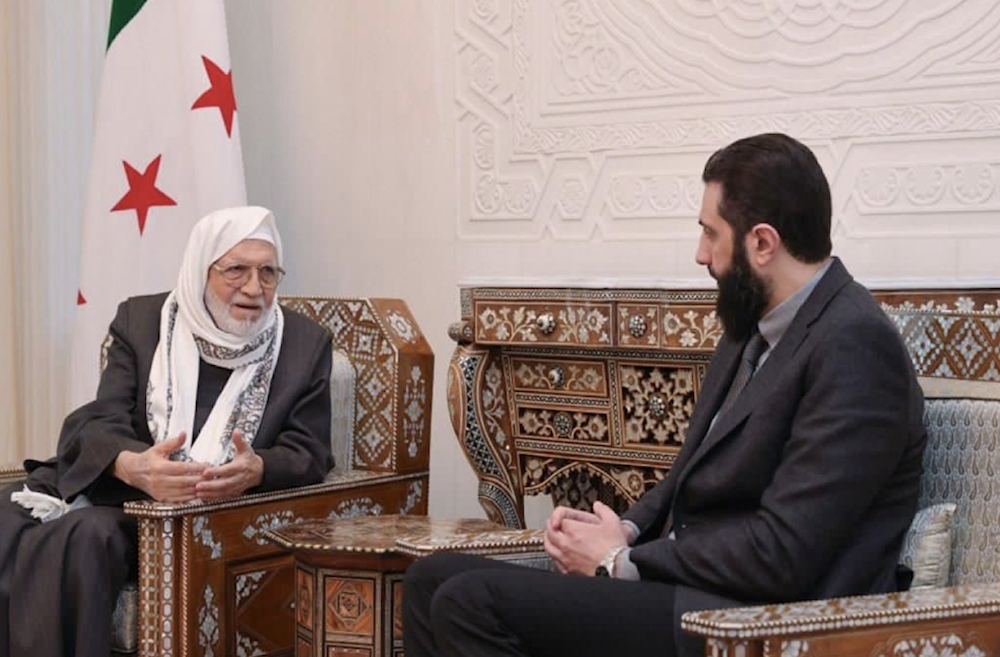Sharaa appoints Sheikh Osama al-Rifai as Mufti of the Syrian Republic
According to Ahmad al-Sharaa, the Fatwa Council aims to regulate moderate religious discourse that balances authenticity and modernity,
-

Syrian President Ahmad al-Sharaa and Grand Mufti of the Syrian Republic Sheikh Osama al-Rifai (Social media)
Ahmad al-Sharaa, the transitional President of Syria, has appointed Sheikh Osama al-Rifai as Grand Mufti of the Syrian Arab Republic on Friday evening.
In a press conference with Sheikh Al-Rifai, Al-Sharaa emphasized their efforts to "rebuild Syria" alongside its scholars and population, highlighting the crucial role of the Grand Mufti.
He noted that issuing a fatwa should be a collective responsibility, achieved through the formation of a Supreme Fatwa Council, where extensive research and investigation precede any fatwa, as it is a significant trust and a divine responsibility.
Al-Sharaa further stressed that the Fatwa Council aims to regulate moderate religious discourse that balances authenticity and modernity, preserves identity, resolves divisive disputes, and prevents the spread of evil and discord.
Earlier, al-Sharaa hosted a delegation of 16 representatives from the Shia community in Syria.
During the discussions, al-Sharaa reaffirmed the Syrian government's commitment to upholding the principles of equality, citizenship, and competence, regardless of religious, ethnic, or sectarian differences, a source who attended the meeting told Al Mayadeen.
The source described it as "positive and constructive," with al-Sharaa emphasizing the need to view all Syrians through the lens of national unity.
"We must treat every Syrian equally based on citizenship, the law, and competence," he said, according to the source, underscoring the importance of equal treatment for all citizens in the country.
Al-Sharaa also addressed the specific concerns raised by the Shia delegation, stating that he had taken immediate action to resolve the issues discussed.
Moreover, al-Sharaa highlighted the importance of rebuilding relationships between villages inhabited by Shiite Syrians and their neighboring towns, particularly given the social and economic damage left by years of conflict. He pointed out the urgent need to address the long-standing issues caused by the war, which have created tensions and difficulties in many communities.

 2 Min Read
2 Min Read








